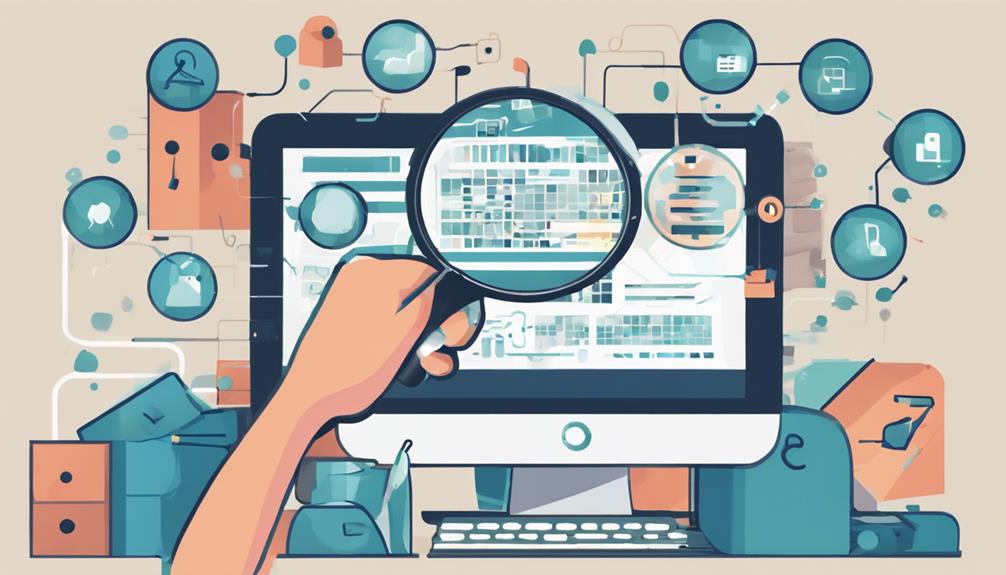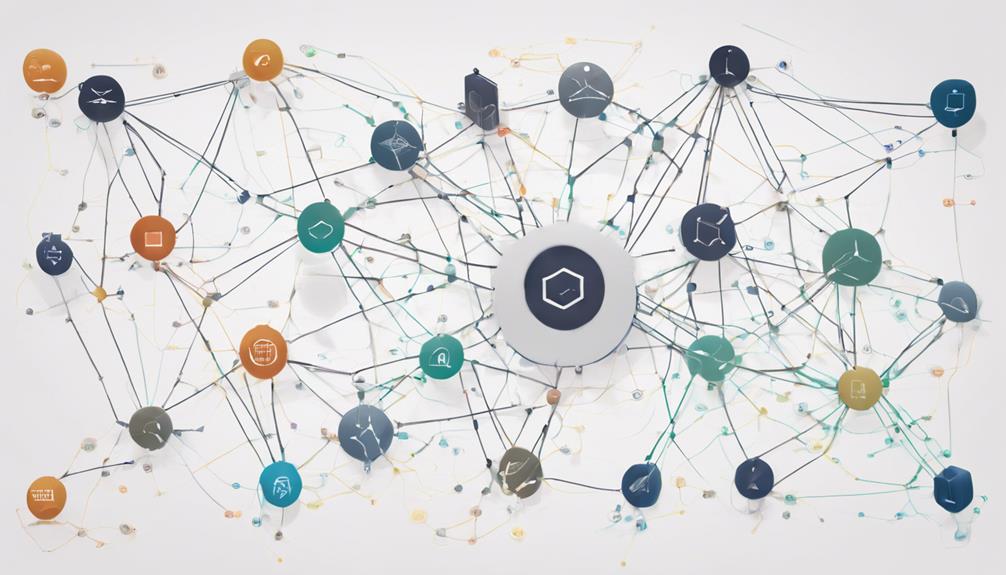To enhance B2B data accuracy, you must first understand the importance of reliable data for your business operations. By implementing a systematic approach to data validation, you can minimize errors and ensure that your information is trustworthy. But what if there were simple yet effective techniques you could employ to boost data accuracy even further? Stay tuned to uncover practical strategies that can elevate your data quality and pave the way for more informed decision-making in the competitive B2B landscape.
Assessing Current Data Accuracy
When evaluating the current state of data accuracy in your B2B operations, it is crucial to conduct a comprehensive analysis of your existing datasets. Data validation plays a key role in this process, ensuring that the information within your systems meets the required standards for accuracy and reliability. By implementing data validation techniques, such as cross-referencing data points or running automated checks, you can identify and rectify inaccuracies proactively.
Additionally, data profiling is essential for gaining insights into the quality and completeness of your datasets. Through data profiling, you can examine the structure, relationships, and patterns within your data, uncovering potential issues like missing values, duplicates, or inconsistencies. This detailed analysis enables you to understand the overall health of your data and pinpoint areas that require improvement.
Identifying Data Inaccuracies
To effectively enhance your B2B data accuracy, a crucial step involves identifying and addressing data inaccuracies within your systems. Utilizing robust data validation techniques and error detection processes is essential to maintain the integrity of your database. Here are four key methods to assist you in identifying data inaccuracies:
- Implement Automated Data Validation: Set up automated processes to regularly check data for inconsistencies or errors, ensuring accuracy and completeness.
- Conduct Regular Data Audits: Perform routine audits to assess the quality of your data, identifying discrepancies and inaccuracies that require immediate attention.
- Utilize Data Profiling Tools: Leverage data profiling tools to analyze the quality and structure of your data, pinpointing potential inaccuracies or anomalies.
- Establish Data Quality Metrics: Define specific data quality metrics to measure the accuracy of your data, allowing you to track improvements and identify areas needing enhancement.
Developing a Data Accuracy Strategy
Developing a robust data accuracy strategy is paramount for businesses looking to maintain reliable and high-quality B2B data. To enhance data accuracy, companies must implement thorough data validation processes. This involves scrutinizing incoming data to ensure it meets specific criteria and is error-free. By validating data at the point of entry, you can prevent inaccuracies from spreading throughout your database.
In addition to data validation, data enrichment plays a crucial role in improving data accuracy. Data enrichment involves enhancing existing data with additional information from external sources. By enriching your B2B data with up-to-date details, such as firmographic data or contact information, you can ensure that your database remains relevant and accurate.
A well-rounded data accuracy strategy should encompass both data validation and data enrichment techniques. By combining these approaches, you can maintain a clean and reliable B2B database, enabling more effective decision-making and enhancing overall business performance.
Implementing Data Cleaning Techniques
Implementing data cleaning techniques is essential for businesses seeking to ensure the accuracy and reliability of their B2B data. To enhance your data quality effectively, consider the following steps:
- Data Enrichment: Utilize tools and services that supplement your existing data with additional information, such as company size, industry classification, or contact details. This process enhances the value of your data and provides a more comprehensive understanding of your B2B contacts.
- Duplicate Detection: Employ algorithms and software solutions to identify and eliminate duplicate entries within your database. By removing redundant information, you can prevent errors, inconsistencies, and confusion that may arise from having multiple versions of the same data.
- Standardization: Establish uniform formats and structures for your data fields to ensure consistency across all entries. Standardizing elements like addresses, phone numbers, and names can streamline processes and facilitate easier data analysis.
- Regular Audits: Conduct routine audits of your B2B data to identify any inconsistencies, inaccuracies, or outdated information. By proactively reviewing and updating your database, you can maintain high levels of accuracy and relevance in your business operations.
Utilizing Data Accuracy Tools
When aiming to enhance the accuracy of your B2B data, incorporating data accuracy tools can be a strategic approach. Data validation tools play a crucial role in ensuring that the information in your database is correct and consistent. These tools can automatically scan and verify the accuracy of the data, flagging any inconsistencies or errors for further review and correction. By utilizing data validation tools, you can maintain a high level of accuracy in your B2B data, ultimately leading to better decision-making and more effective marketing strategies.
In addition to data validation, accuracy monitoring tools are essential for continuously assessing the quality of your B2B data. These tools enable you to track the accuracy levels over time, identify any emerging issues, and take proactive measures to address them promptly. By regularly monitoring the accuracy of your data, you can ensure that it remains reliable and up-to-date, allowing your business to operate efficiently and effectively. Incorporating both data validation and accuracy monitoring tools into your data management processes can significantly improve the overall quality and reliability of your B2B data.
Frequently Asked Questions
How Can I Ensure Data Accuracy When Dealing With Multiple Data Sources?
To ensure data accuracy when dealing with multiple sources, focus on data validation techniques such as cross-referencing, consistency checks, and outlier detection. Implement robust data integration processes to harmonize information from various sources effectively.
What Are the Best Practices for Maintaining Data Accuracy Over Time?
To maintain data accuracy over time, prioritize data hygiene and automation for consistent results. Implement strong data governance practices to ensure consistency across sources. Regularly audit and update data to uphold accuracy standards.
Are There Specific Data Accuracy Metrics to Track for B2B Data?
Tracking data accuracy for B2B data involves setting accuracy benchmarks, monitoring data validation processes, and reporting on the results. By focusing on key metrics, you can ensure data integrity and make informed business decisions.
How Can I Prevent Data Inaccuracies When Data Is Constantly Changing?
To prevent data inaccuracies when data is constantly changing, ensure real-time updates and implement robust data validation processes. Regularly verify incoming data, set up automated checks, and establish protocols for handling discrepancies promptly to maintain accuracy.
What Are the Potential Risks of Poor Data Accuracy in B2B Operations?
When it comes to B2B operations, poor data accuracy can have significant consequences. Inaccurate data impacts decision making and erodes customer trust, leading to cost implications and compliance risks. Ensuring data accuracy is crucial for success.



